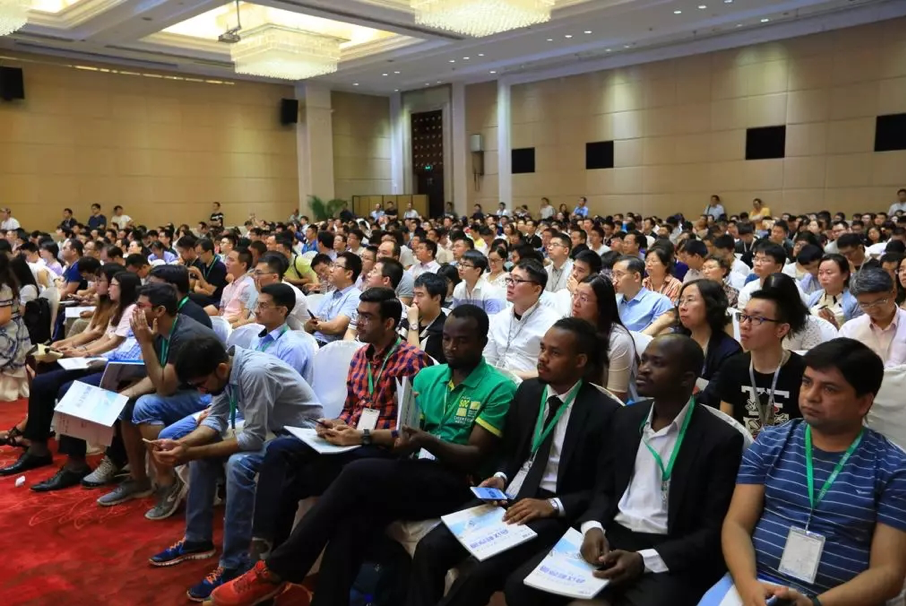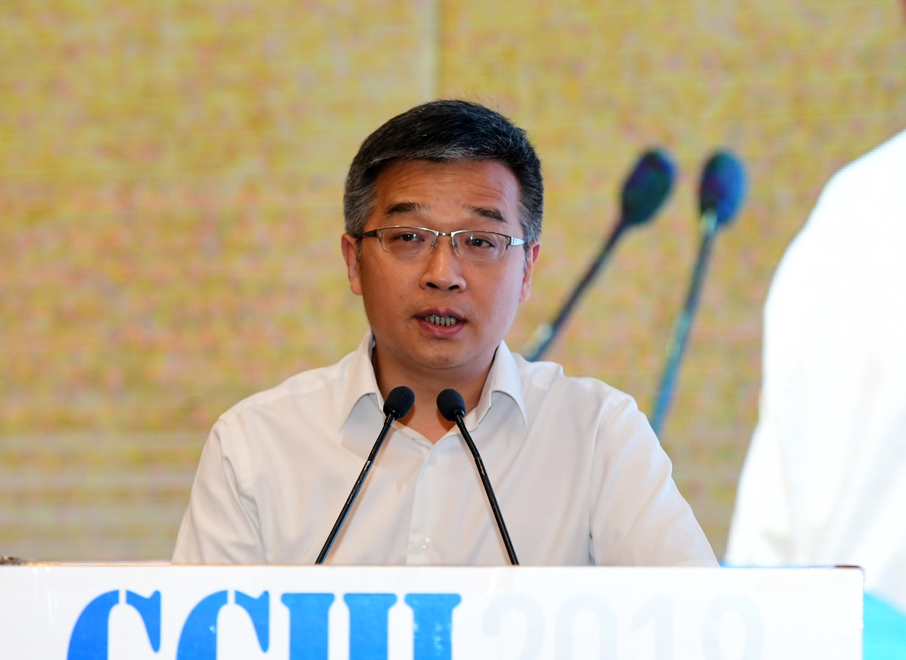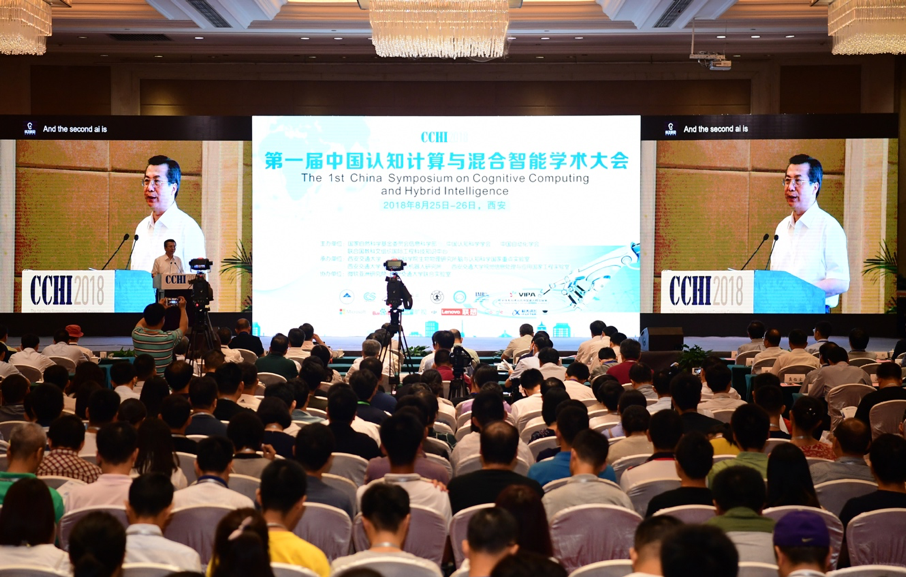From August 25 to 26, co-sponsored by the Information Science Department of the National Natural Science Foundation of China, the Chinese Cognitive Science Society, the Chinese Association of Automation, and the International Knowledge Centre for Engineering Sciences and Technology under the Auspices of UNESCO (IKCEST), the first Chinese Cognitive Computing & Hybrid Intelligence Conference was successfully held in Xi’an.
With its theme focused on the state-of-art development of the frontier interdiscipline of cognition, neuroscience, and artificial intelligence, the conference attracted over 600 attendants from over 130 universities and research institutes, and over 30 companies.
During the opening ceremony on August 25th, Professor Zheng Nanning from Xi’an Jiaotong University, member of the Chinese Academy of Engineering, director-general of Chinese Association of Automation, introduced all the distinguished guests attending the conference. Professor Wang Shuguo, president of Xi’an Jiaotong University, gave the welcome speech. Zhang Zhaotian, vice director of Information Science Department of the National Natural Science Foundation of China; Song Dexiong, vice director of IKCEST and director of the Department of General Administration, Chinese Academy of Engineering; Wang Yongkang, Secretary of Xi'an municipal Party committee, all gave their speech on the opening ceremony. Other guests attending the opening ceremony include members of Chinese Academy of Sciences, members of Chinese Academy of Engineering, leaders from Xi’an city, leaders from Chinese Academy of Engineering and the National Natural Science Foundation of China, academic associations, universities, and companies.
 |
In his speech, director Song Dexiong introduced the establishment of IKCEST in Beijing in June 2014 under the joint support of the UNESCO and the Chinese government, with its headquarters located within the Chinese Academy of Engineering. IKCEST built quite many platforms to serve all scientific researchers from developing countries, offering professional training in various fields, and support for the building of high-end think tanks. Meanwhile, IKCEST responded actively to the nation’s call, and had held two consecutive conferences themed on Artificial Intelligence as well. In the near future, IKCEST will speed its development in the application of Artificial Intelligence, which aims to offer a more powerful support for the Innovation-driven development.
 |
Chen Lin, member of the Chinese Academy of Sciences, director-general of Chinese Cognitive Science Society, and research fellow of Institute of Biophysics of Chinese Academy of Sciences, made the opening report for the conference titled “Core Fundamental Scientific Issue of the New Generation AI: Relation between Cognition and Computing”.
Chairman of the steering committee of the conference was Prof. Pan Yunhe, former executive vice president of Chinese Academy of Engineering and its member. Prof. Chen Lin, and Prof. Zheng Nanning were both chairman of the conference. The steering Committee includes 31 distinguished experts from the Chinese Academy of Sciences, the Chinese Academy of Engineering, the American Academy of Sciences, and the Information Science Department of the National Natural Science Foundation of China.
Another 57 well-known experts in the fields of cognitive modeling & computing, hybrid intelligence, computing architecture and devices inspired by neuroscience, advanced sensing, intelligent robot, unmanned intelligent driving etc, from top universities, research institutes and technology companies from outside and within China, were invited to give speech. Among them are 8 members of the Chinese Academy of Engineering, Chinese Academy of Sciences, 4 members of the Thousand-Talents-Program, 15 winners of National Science Fund for Distinguished Young People, and 12 Distinguished professors of Yangtze-River-Scholar. This conference had 14 general assembly reports and 43 parallel sessions’ reports from the 4 different parallel sessions of Fundamental Theories of Cognitive Computing, Hybrid Enhanced Intelligence & Deep Learning, Computing Architecture & Devices Inspired by Neuroscience, and advanced sensing & Intelligent Environment.
Original Text (This is the original text for your reference.)
From August 25 to 26, co-sponsored by the Information Science Department of the National Natural Science Foundation of China, the Chinese Cognitive Science Society, the Chinese Association of Automation, and the International Knowledge Centre for Engineering Sciences and Technology under the Auspices of UNESCO (IKCEST), the first Chinese Cognitive Computing & Hybrid Intelligence Conference was successfully held in Xi’an.
With its theme focused on the state-of-art development of the frontier interdiscipline of cognition, neuroscience, and artificial intelligence, the conference attracted over 600 attendants from over 130 universities and research institutes, and over 30 companies.
During the opening ceremony on August 25th, Professor Zheng Nanning from Xi’an Jiaotong University, member of the Chinese Academy of Engineering, director-general of Chinese Association of Automation, introduced all the distinguished guests attending the conference. Professor Wang Shuguo, president of Xi’an Jiaotong University, gave the welcome speech. Zhang Zhaotian, vice director of Information Science Department of the National Natural Science Foundation of China; Song Dexiong, vice director of IKCEST and director of the Department of General Administration, Chinese Academy of Engineering; Wang Yongkang, Secretary of Xi'an municipal Party committee, all gave their speech on the opening ceremony. Other guests attending the opening ceremony include members of Chinese Academy of Sciences, members of Chinese Academy of Engineering, leaders from Xi’an city, leaders from Chinese Academy of Engineering and the National Natural Science Foundation of China, academic associations, universities, and companies.
 |
In his speech, director Song Dexiong introduced the establishment of IKCEST in Beijing in June 2014 under the joint support of the UNESCO and the Chinese government, with its headquarters located within the Chinese Academy of Engineering. IKCEST built quite many platforms to serve all scientific researchers from developing countries, offering professional training in various fields, and support for the building of high-end think tanks. Meanwhile, IKCEST responded actively to the nation’s call, and had held two consecutive conferences themed on Artificial Intelligence as well. In the near future, IKCEST will speed its development in the application of Artificial Intelligence, which aims to offer a more powerful support for the Innovation-driven development.
 |
Chen Lin, member of the Chinese Academy of Sciences, director-general of Chinese Cognitive Science Society, and research fellow of Institute of Biophysics of Chinese Academy of Sciences, made the opening report for the conference titled “Core Fundamental Scientific Issue of the New Generation AI: Relation between Cognition and Computing”.
Chairman of the steering committee of the conference was Prof. Pan Yunhe, former executive vice president of Chinese Academy of Engineering and its member. Prof. Chen Lin, and Prof. Zheng Nanning were both chairman of the conference. The steering Committee includes 31 distinguished experts from the Chinese Academy of Sciences, the Chinese Academy of Engineering, the American Academy of Sciences, and the Information Science Department of the National Natural Science Foundation of China.
Another 57 well-known experts in the fields of cognitive modeling & computing, hybrid intelligence, computing architecture and devices inspired by neuroscience, advanced sensing, intelligent robot, unmanned intelligent driving etc, from top universities, research institutes and technology companies from outside and within China, were invited to give speech. Among them are 8 members of the Chinese Academy of Engineering, Chinese Academy of Sciences, 4 members of the Thousand-Talents-Program, 15 winners of National Science Fund for Distinguished Young People, and 12 Distinguished professors of Yangtze-River-Scholar. This conference had 14 general assembly reports and 43 parallel sessions’ reports from the 4 different parallel sessions of Fundamental Theories of Cognitive Computing, Hybrid Enhanced Intelligence & Deep Learning, Computing Architecture & Devices Inspired by Neuroscience, and advanced sensing & Intelligent Environment.











 User Center
User Center My Training Class
My Training Class Feedback
Feedback












Comments
Something to say?
Login or Sign up for free